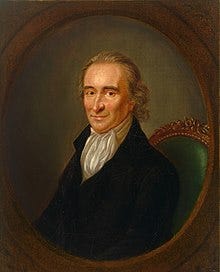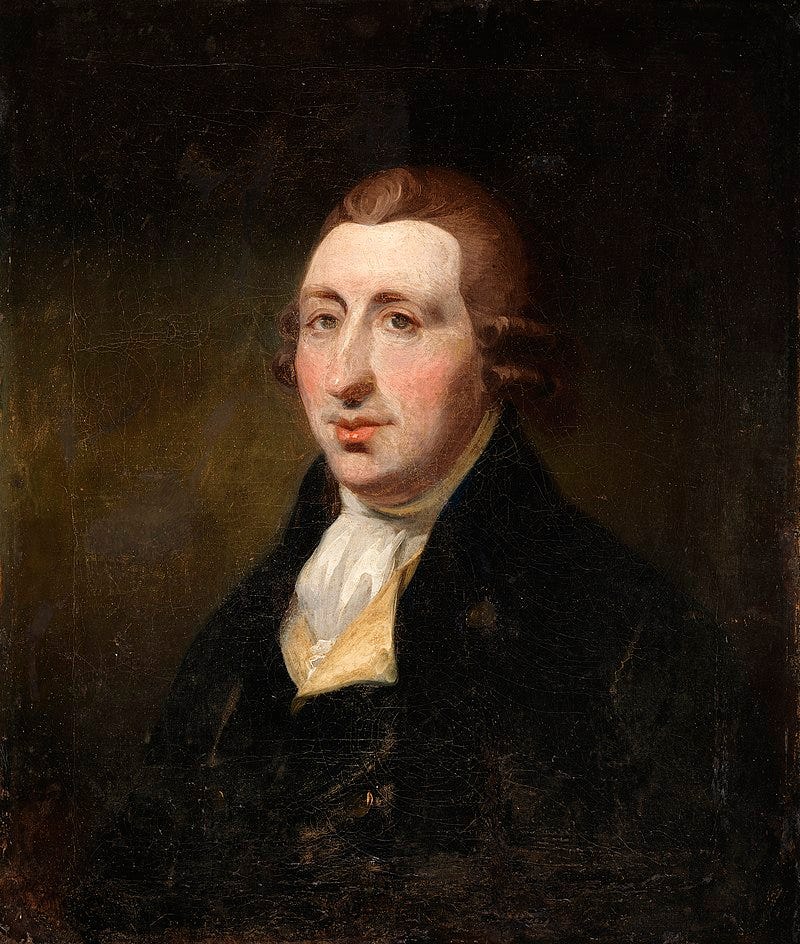Thomas Paine and Ireland in the 1790s
From and unengaged perspective, to an enthusiastic advocate of Irish radical causes.
Thomas Paine though considered one of the leading revolutionary idealists of the eighteenth century – remained relatively aloof of Irish affairs even in relation to the impact the American Revolution had upon the political situation there. In the words of David Keogh, he held a ‘fairly conventional and unengaged American perspective’ of Irish affairs viewing them as a kingdom attached to Britain, one which remained artificially deficient to avoid it overtaking the latter.
His opinions and interests changed however after the release of his Rights of Man Vol 1 in 1791. Responding to the publication of Edmund Burke’s Reflections on the French Revolution in 1790, he put out a response which resonated with many in leading radical and reform groups in Ireland;
‘The great assault on Burke’s Reflections was an extraordinary commercial and political success throughout the English-speaking world, but notably so in Ireland.’
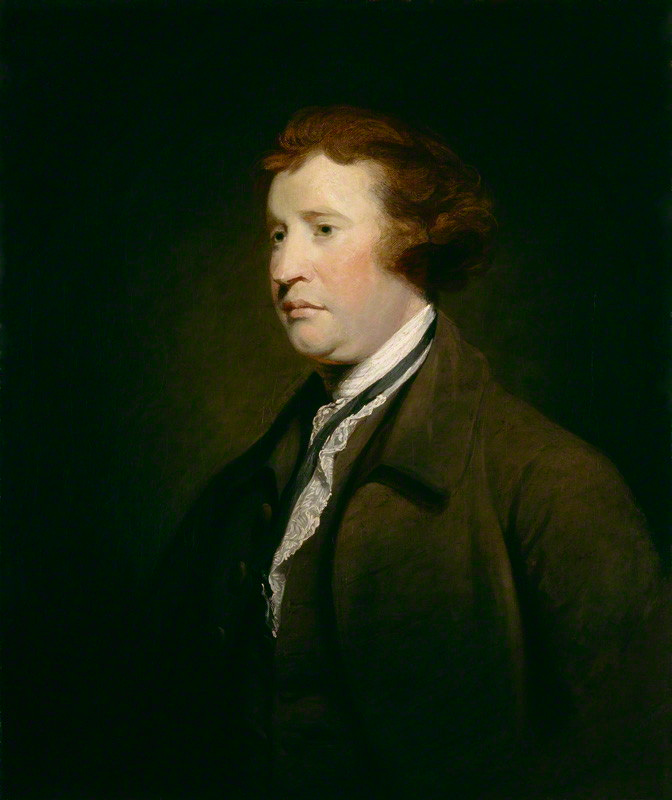
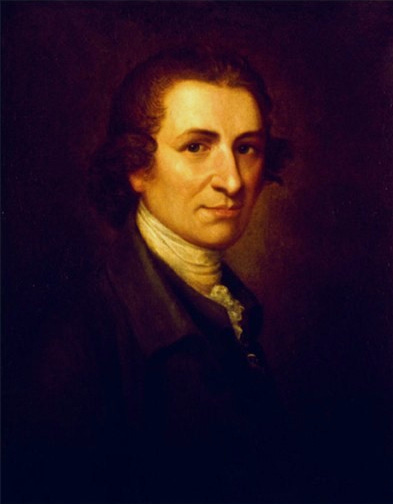
What most caught his eye though, was the sales figures for his work Rights of Man in November 1791 – in England about 16,000 copies were sold but he claimed that in Ireland the number exceeded more than 40,000 in the first 8 months since publication. The shock of these figures indicates that it was clearly not his intention or a goal for which he set out to achieve. It is this reception which prompted Paine to become;
‘an enthusiastic if not very well-informed advocate of Irish radical causes, notably in France during his ten-year residency there’.
On 5 June 1792, Thomas Paine was proposed for honorary membership of the Dublin Society of United Irishmen and in arrangements for July 14 in Belfast 1792, Paine is listed as one of mainly celebratory toasts in correspondence between William Drennan and Samuel McTier. We see the United Irishmen latch on to many of the proposed ideas within Paine’s writings from as far back as Common Sense and the American Crises. Particular attention is paid to the rights of men, the unnatural rights of the aristocracy and much more. The language was adopted in resolutions and speeches, and on banners paraded through Belfast to commemorate the fall of the Bastille in 1791-92 (Click this link to view my previous blog about these parades).
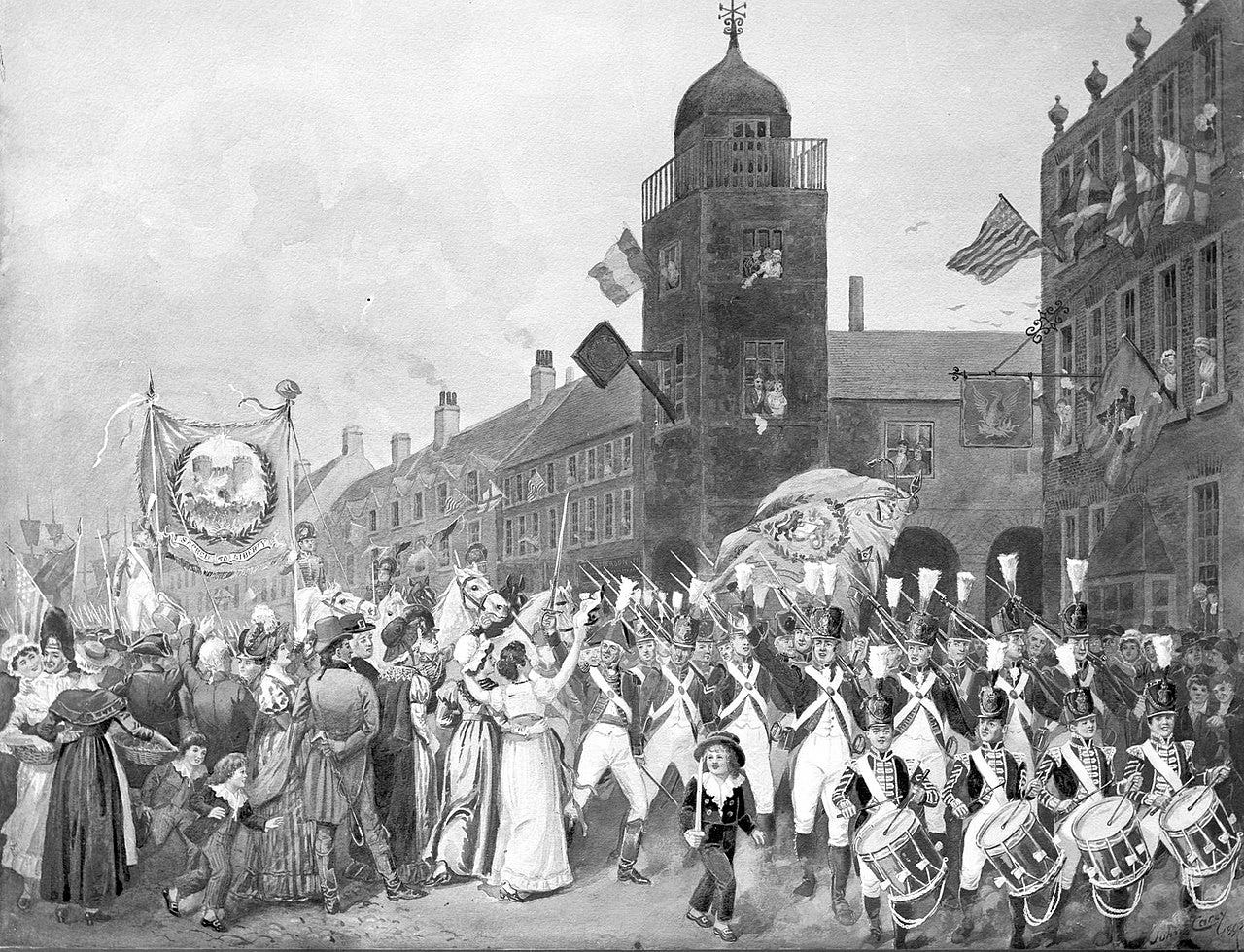
Rights of Man had become such a popular tome in Belfast that Theobald Wolfe Tone commented in 1791 that it had become the ‘Koran’ of the town and upon the announcement of a Volume 2, a Belfast bookseller claimed that Volume 1 had been ‘read perhaps more universally than any pamphlet during the present century’. Its popularity, was largely due to the language employed by Paine and the way in which he got his point across. Coming from a working-class artisan background, Paine understood the futility of writing lofty polemic, and aimed to ground his writings in an understandable and accessible language.
This is one reason for the United Irish interest in his work – not only did they share views with Paine, but it aided in their goals of democratising and the popularisation of politics in order to broaden their base. It assisted the Society in moving into a firmer footing of popular politics and winning over a greater swathe of the population. Following the publication of Rights of Man, Volume 1, later the same year Wolfe Tone published his Argument on Behalf of the Catholics and David Keogh argues that ‘the intimate, chaste style of Tone’s prose and the uncomplicated logic of the argument suggest a literary debt to Paine’.
Rights of Man, Volume Two proved however, for many, a step too far beyond the pale. His criticism of the British constitution and insistence on a republic without monarchy were far more radical than anything Whig groups or even the United Irishmen had been envisioning by 1792. It would take another 2-3 years for the bulk of United Irishmen to become comfortable with these policy suggestions and excerpts from Volume Two in newspapers are found to be much more selective than Volume One, for which large tracts can be found to have been transcribed for readers.
In spite of this, Paine continued to enjoy a rapturous reception of his work in Ireland – one historian noting that while popular everywhere, it was especially so ‘on the bloodstained soil of Ireland, where demand for the book was arguably greatest’. It naturally resonated with a kingdom where an elite (the Protestant Ascendancy) comprising about 10% of the population held dominion over the rest, with no social mobility whatsoever. This 10% owned 90% of the land, controlled the government, the church, army and courts. In Paine’s own words, the system was one doomed to fail violently if a change was not made;
‘the suspicion that England governs Ireland for the purpose of keeping her low, to prevent her becoming her rival in trade and manufactures…will always operate to hold Ireland in a state of sentimental hostility with England’.
Paine’s influence in Ireland, evidently went beyond the bounds of the United Irishmen and other reformers within the government opposition. Historian John Keane highlights in his work that the accessibility of Paine’s work, specifically Rights of Man, made its way into the Irish countryside, resonating most with Irish Catholic peasants, already intermittently turned to violence against landed estates in the form of the Whiteboys in the south-west, the Defenders up north to name but two. From Galway to Wexford, Paine’s works were debated in ‘taverns, streets and marketplaces’ and years later, when tensions rose to the peak, and they began to form citizen’s militias they remained strongly under the influence of his political philosophy – adopting a republican mantra; ‘I believe in a revolution founded on the rights of man, in the natural and imprescriptible right of all Irish citizens to the land’.
Paine, remained closely attached to affairs in Ireland for the remainder of the 1790s and kept close tabs on the French expeditions of 1796 and 1798, also becoming closely acquainted with James Napper Tandy when he arrived in Paris 1797. When Tandy returned to Ireland as a French General in 1798 during the doomed expedition of that year, and was subsequently arrested, Paine proved influential in arguing for his release and deportation back to France in 1802.
His time in France, had now come to an end however, in September 1802 he returned to the United States for the last time where his reputation retreated further into obscurity. It was perhaps the Irish exiles of the failed rebellion of 1798 and their descendants who supported him in his final years the most. His influence on Ireland and the political landscape cannot be underestimated - his works were widely published and likely reached a far greater audience than those supposed sales suggest. What it generated was not only the exercise of political argument among a wider population but it also generated a huge production of competing works stemming from Dublin Castle in attempts to undermine his writing. Thus, what came out of 1790s Ireland was a flurry of political debate, largely stemming from the production and dissemination of Paine’s political philosophy in the Irish world.
If you like my work and want to say thanks, or support me in another way, you can buy me a coffee! Nothing is expected, but any support is greatly appreciated! https://www.buymeacoffee.com/ruairiaor
Further Reading:
David Dickson, ‘Paine and Ireland’ in D. Dickson, D. Keogh and K. Whelan (Eds), The United Irishmen: Republicanism, Radicalism and Rebellion (Dublin, 1993).
John Keane, Tom Paine: A Political Life (London, 1995).
John E. Ferling, Apostles of Revolution: Jefferson, Paine, Monroe, and the Struggle Against the Old Order in America and Europe (Bloomsbury, 2018).

